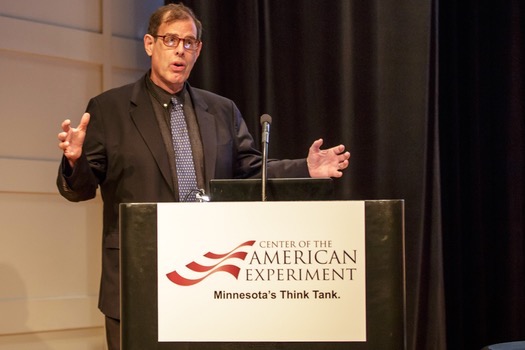Center Launches Major New Education Program
Wednesday afternoon, American Experiment launched its “Great Jobs Without a Four-Year Degree” project with a kickoff event at the Minnesota History Center. The keynote speech was delivered by Nick Eberstadt, author of Men Without Work, and Kathy Kersten and Mitch Pearlstein laid out some of their plans for the project.

The event was well-attended despite heavy rain and traffic delays. Guests included educators, union representatives, corporate executives, employees of relevant state agencies, and others. The Star Tribune has a good report on the event:
[T]he problem continues to grow in the state and the Center of the American Experiment is launching a multiyear project called “Great Jobs without a Four-Year Degree” that is designed in part to get more people working. The think tank’s president, John Hinderaker, called it “[one of] the most important project[s] they’ve ever done.”
The goal of the program is to get younger Minnesotans aware of post-high school opportunities outside of enrolling in a four-year college. This includes raising awareness for apprenticeships, associate’s degrees, occupational certificates, job training in the military and more.
“There’s all these great things going on, but people don’t know about them, in different parts of the state and industry,” said Kathy Kersten, senior fellow for the center. “We’d like to be a vector for these success stories.”
The Center intends to use all of the resources at its command to inform parents and students about the many excellent career paths that are available without college degrees, thereby benefiting not only Minnesota’s young people but also the state’s economy. The problem, ultimately, is cultural, as too many people–especially parents–remain convinced that college is the only route to career success. That conviction causes too many young people to overlook what could be the best opportunities for them.
The Center’s Great Jobs project is intended to continue for the next two years, and possibly beyond.